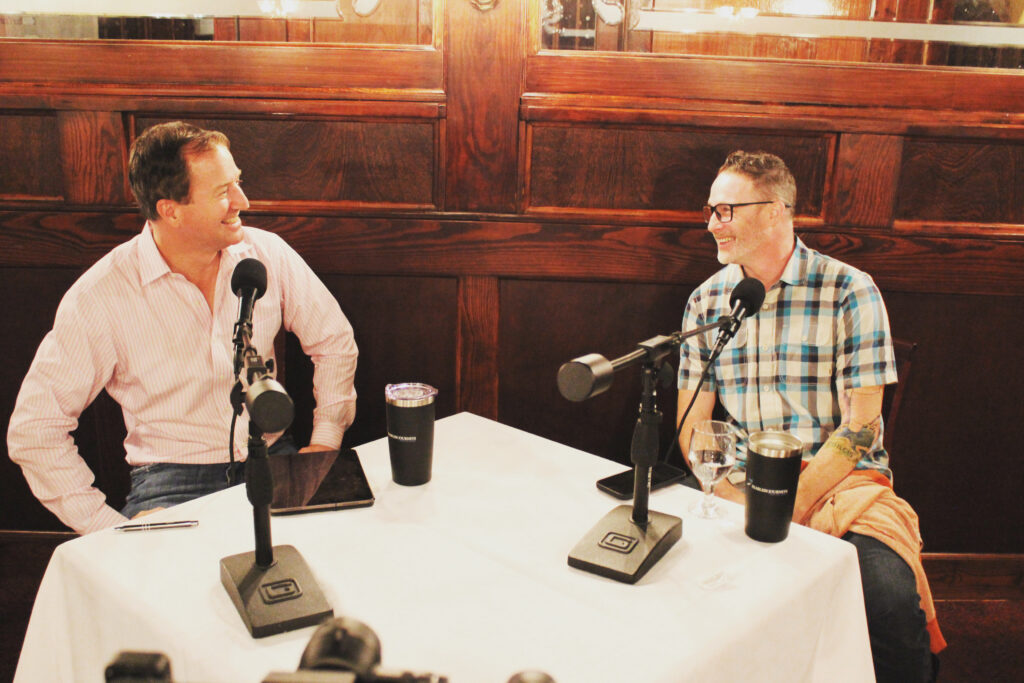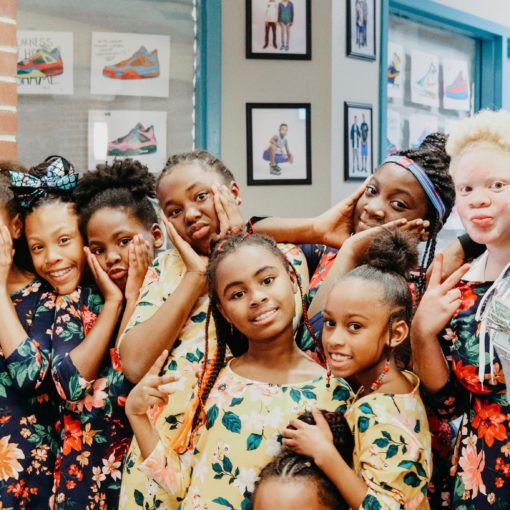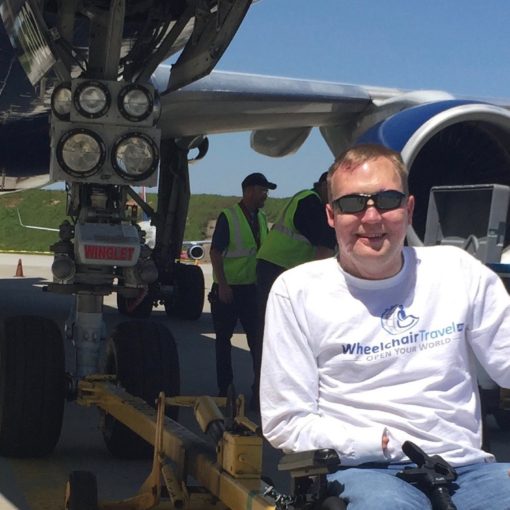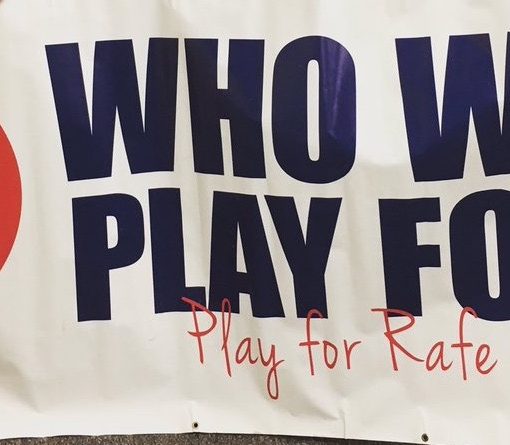At about the age of 14, Gerard Kelly worked at an independent family-owned movie theater in the small Central Florida city of Deltona. He was put to work at a lot of tasks that included concessions, ushering, bagging popcorn, and sweeping floors. And the couple that owned the theater were “very, very involved,” said Kelly. They would “look over you while you were bagging popcorn.” He quickly learned that to run a movie theater, the profit margins are very thin.
“The struggles these people were going through, and all the work they had to put in that they had to make — this business that wasn’t entirely under their control — successful was really impressive on me,” said Kelly, who was our guest on Episode 100 of the Agents of Innovation podcast. You can listen to our full conversation on Spotify, Apple podcasts, Audible, Stitcher, or wherever you listen to podcasts.
Today, Gerard Kelly is a giant in the video gaming industry. However, it’s likely you haven’t heard of him. He’s not exactly a household name, especially for those who aren’t intricately involved in the world of esports.
A child of the 1980s and 1990s, Kelly’s interest in gaming was first piqued by the fact that his dad had worked for Siemens and Stromberg Carlson.
“We were like the first kids in our neighborhood to have the old Tandy computers,” said Kelly. “So I was playing DOS-based games and kind of learned to program and basic and really old languages that nobody uses anymore.”
Warcraft (now known as World of Warcraft) was the first game that created a bond between him and his dad. He later got into StarCraft.
“You could argue that Starcraft was the first really, really popular esport and I kind of played in the really low levels of their competitive scene,” said Kelly.
Like many young Americans in modern times, Gerard Kelly started a path toward higher education. He began his A.A. at Seminole Community College (now Seminole State College). He later transferred to the University of Central Florida (UCF) to study economics. But he later dropped out altogether.
“I wasn’t like a Mark Zuckerberg – like I had this great idea – so dropping out of college. I was just like a really bad kid. I partied too much. I got into all sorts of trouble. Eventually the school was just like your grades suck and you’re not coming back.”
While he thought he would go back to Seminole CC and then return to UCF, he said “Life kind of happened and so kind of never went back.” (However, now, over 20 years later, he is soon going to be going back to take some classes there to help him with a personal project).
After UCF, he said “I kind of bounced around.” He tried to start a business. He described it as kind of like a sweepstakes game that looked like a slot machine, so kind of a gambling business. He borrowed funds from his parents. But the company failed.
“I ended up losing everybody’s money because of my irresponsibility,” said Kelly.
After that, he moved to Atlanta, where his best friend was. This was in the heyday of World of Warcraft. “World of Warcraft really changed the awareness of video gaming and really built a generation of video gamers,” said Kelly. “You hear these comments about kids spending 15, 16 hours a day sitting at their computers playing video games – World of Warcraft started this.”
Separate from playing video games, Kelly got involved in a few small businesses in Atlanta, including owning a piece of a bar. “We went after other bars to turn around their businesses.”
Kelly said that it was around this time that League of Legends started to become really popular and created a competitive system called the League Championship Series (LCS) and the North American Challenger Series (NALCS). These teams were worth around $300k-$500k
Around 2010, his friend Mike Rosenwimmer approached him about the industry within League of Legends. They each decided to invest around $50k – $75k to hire players and build teams to qualify for the challenger series.
“We were able to flip some of these teams and make some money. It was an amazing experience,” said Kelly. “It was like the ground level, the bargain basement version of competitive video gaming as a business.”
Today people don’t just play video games. They compete. It’s called esports. And don’t let that name confuse you. It’s not just video games about sports, but rather the competition of video games has become a digital sport.
But Gerard said this idea of competing in video games, “really all started with arcade games. People meeting at arcades to get high scores in Pac-Man.”
“It kind of migrated from there. The accessibility of the internet and allowing people to play non-centrally located really opened up the world of esports,” said Kelly. “Before, you had anybody sitting in an arcade and he was the best guy in a 5-block radius of the arcade. Now, all of a sudden, you can jump into a StarCraft game with somebody on another continent and you realize just how bad you really are.”
More recently, “esports created a revolution,” said Kelly. The accessibility to be able to play with almost anyone in the world “creates a community where sports isn’t necessarily able to do that.”
Getting into this industry on the ground level, Kelly soon went from player to business owner in the gaming arena.
“When I realized that I was not good enough to be a real professional competitive player in any game … and I saw the business model behind it … we just kind of ran with it … it just kind of snowballed.”
“I lucked out with the challenger series,” said Kelly. “We were able to flip a couple of teams… we were going through one of the seasons and we had relegated a couple of teams and we had got into the pro league relegation system and I had beat out this other guy’s team and it turned out this other guy was Martin Shkreli.
Shkreli would later go to prison (for another one of his businesses). But at this time, “he was just some rich guy worth a few hundred million dollars” who “had been playing League of Legends for years,” said Kelly.
Shkreli offered him an opportunity to drop everything else he was doing and to do this full-time. “Two days later, me and Mike were on a plane to L.A., leaving what we were doing on the other side of the country. We were making the push to make it into the LCS so that we could eventually capture a franchise. We didn’t know that’s not how the franchise teams were going to be given out anyways, and neither did anybody else. That’s when everyone really started to get into this space.”
“I think I was just a little bit older than a lot of people so other business people kind of just thought that I was an easier fit,” said Kelly. They set up Team Imagine, but then Shkreli got into all sorts of legal trouble with some of his other businesses and that wasn’t going to bode well for anyone associated with them.
After Shkreli went to prison and stopped funding the company (Team Imagine), other investors stepped up and Kelly also started exploring other opportunities.
Kelly took part in an esports conference in San Francisco, where he happened to meet Andy Miller, the owner of the Sacramento Kings. Miller had been the founder & CEO of Quattro Wireless, which he had sold to Apple. He also gave Steve Jobs the idea for what would later become the App Store.
Miller invested in what became NRG Esports and Kelly became its co-founder and CEO. Despite all of his various business experiences and failings prior to this moment, “This was certainly the biggest thing I had done,” said Kelly. “NRG was founded at the same time as two very large teams.”
A-Rod, Shaquille O’Neal, Jennifer Lopez, and many other popular athletes and celebrities also became involved as investors and business partners with NRG. Some of these celebrities have attracted sponsorships.
After a successful run, Kelly would later have some disagreements with some of his other co-owners. Plus, he didn’t have a whole lot of faith in the Overwatch League, which was just coming into its own. He exited NRG Esports, eventually selling out all of his shares. He was now looking for something new to do
“I got really interested at that point in the broadcast element, in how people were digesting battle royales,” said Kelly. He ended up going to work for a group that was trying to create a gambling product under the direction of Cary Katz, who later became a professional poker player.
“We ended up founding the World Series of esports,” which was later abbreviated to “WSOE” (for copyright reasons). They held a bunch of competitions, where he was an early broadcaster.
He then moved on again, getting involved in collegiate esports, which is for gamers in college and has become very large. In fact, today, some colleges have esports clubs. Some even have esports degrees. Nearby UCF and Full Sail University, both in Orlando, have big gaming programs. These were not available when Kelly was in college, but perhaps by taking a different route he was part of a wave that paved the way for others to build their own skills in this growing field.
He learned that ESPN owns all the production rights for the bowl games, but not necessarily the broadcast rights. So he went to Charlotte to pitch some of their executive staff on covering a collegiate esports championship.
It turned into a 12-week program, with a one- hour television program and a Live Attended (LAN) event in Houston. To date, it still has one of the highest viewership metrics for any of the college esports events on Twitch (which is an American video live streaming service that focuses on video game live streaming, including broadcasts of esports competitions). It was also nominated for an Emmy.
Today, Kelly is now the co-founder of Havik, which makes virtual reality training software for special operations soldiers. How he got into this is a bit of a wild story.
One day Gerard and his friend Todd were in Los Angeles to meet with a guy named Brad who was a U.S. Navy Seal, who had been involved in a joint terminal air controller (JTAC). These are the kinds of teams that call in bomb strikes from a couple hundred feet.
Prior to being a Navy Seal, Brad had gone to a university for game design. When Gerard and Todd met Brad, he explained to them how expensive – and ineffective – the training was for these bomb strikes and that he had developed a virtual reality (VR) system that was so portable that he could take it to Afghanistan and use it to help other Seals train on it.
When Gerard heard this story, he said, “I was super excited.” In fact, he was so excited he agreed to invest in it on the spot. “Without due diligence, without anything, I wrote the guy a $500,000 check.”
A few days later he asked for the corporate documents only to discover that Brad, the Navy Seal, didn’t control the company. The VC firm built the entire structure of his company. And, he didn’t yet know it, but according to the details of the legal documents, Brad was just a “paper tiger CEO,” said Kelly. “He thought that the lawyer that brought him his paperwork was his attorney and it wasn’t. It was these guys’ attorney.”
Gerard called Brad and asked for his money back because he told him, “I don’t think you are legally allowed to accept this from me.” The VC firm had never put in any money but kept telling Brad they were going to. While Brad did not initially want to return the funds to him, Gerard sat down and went line by line in the corporate contract to explain to him how he was getting screwed over by this VC firm. They then set up an in-person meeting with the VC firm and the attorneys.
Gerard put pressure on them in the meeting. “I had to hire an attorney for him because it was his company that he was going back and forth about,” said Kelly. “We ended up getting them out.”
And once they were free from the manipulative investors, Havik ended up getting small innovation research grants and they are now developing new products.
“It’s probably the most exciting thing that I do,” said Kelly.
Gerard recounted that he made a mistake by not doing his due diligence before writing that initial check. He was simply so inspired by Brad that his emotions led him to do something irrational.
“It’s impossible to stand in a room next to this guy and not believe in him,” said Kelly.
With this lesson in mind, Gerard advises entrepreneurs to “take your time” when getting into business relationships. “Get to know somebody. There’s no reason to rush into anything. Really get to know somebody that you’re going to sign a contract with.”
He also advises having an outside attorney, especially one that is independent of the other party. “Anybody who is sitting on the other side of the contract from you ultimately has their best interest in mind.”
Of course, he said, you also have to balance that with the other piece of advice he likes to give: “take risks.”
“I have leveraged my credit, everything that I’ve owned, everything that my friends and family have owned, to go do things,” said Kelly.
“I’ve had a lifetime of failure. It started with university. I’ve been in every possible type of trouble you could possibly imagine. There is a point in my 20’s that I think my credit score was like 500. You realize that you’re still alive. Failure is not the end. You can always try to get back up, dust yourself off, try to take a swing again.”
He believes that if you don’t take those chances you might find yourself looking back and saying, “What could’ve been this? That’s worse than doing it and failing.”
Throughout his life and career, Gerard Kelly has bootstrapped businesses, taken investments from family and friends, and has sought venture capital investments.
He has had the opportunity to work with people like billionaire Patrick Soon-Shiong, who is the owner of the L.A. Times, the richest person in Los Angeles, a doctor who was the first in the world to do a pancreatic transplant, is currently developing medications to fight COVID-19, and is also investing in the gaming industry. Kelly says that Soon-Shiong “does nothing small … money doesn’t matter. It’s more about the positive change it can do.”
Kelly has also lived all over the world: In addition to Orlando, Atlanta, Los Angeles, New York, and Houston, he has also resided in places like Berlin and Shanghai. He has traveled to six continents and is soon going to be traveling with his father to Antarctica.
And after having a heart attack in 2020, at the age of 39, he has learned to make some life adjustments for his own health and future. It has also helped him put his focus on other things, such as making a difference as an investor and in the philanthropic space.
At the time of our podcast in early December 2021, Kelly also showed up with a broken foot, from some MMA training he recently participated in.
From both a business and philanthropic perspective, he has also become involved in search and rescue operations. And he recently became involved in a charity called CROW – a Conservation Ranger organization.
In most of his recent ventures he has learned to play different roles in achieving success. This gives him more free time and he likes to use that free time on “things that I can morally get behind that I can donate my time to.”
But when gets involved, he gets hands-on with things such as search and rescue, he does it with the. “doing good by doing well philosophy … I really subscribe to that,” he said.
One of the charitable ventures he is involved with is Team Rubicon – a largely veteran-run organization that is focused on disaster resource management and search and rescue, and is entirely volunteer. They give volunteers a background check, courses, and send you off to an area after a disaster (like the recent tornadoes in Kentucky). “I’ve been to lots of disaster sites and they oftentimes there before FEMA gets there,” said Kelly.
“I’ve often found: always let the experts do the things they are experts at,” said Kelly. I have a propensity to be able to bring people together and build a structure and let it move forward. I’ve found it’s just better for my businesses and better for me to let the people who are the professionals do the professional stuff.”
“The difference is you have the people who have the vision and you have the people who are able to execute on that vision. Oftentimes that’s two separate qualities,” said Kelly. “Most of the time, the guy who is the visionary of the company doesn’t need to be the guy running the day to day of the company. The common trait that I’ve seen among truly successful people is just like their ability to collaborate, their ability to be totally transparent and communicative.”
“The reality is everybody you meet has an experience you don’t have, that knows something you don’t know. I always assume that everybody that I meet is smarter than I am.”
“I’ve been fortunate or unfortunate or silly my entire life to have always been surrounded by people who are much more intelligent than I am and I’ve been able to continually learn from them.”
Kelly said top innovators like Elon Musk or Warren Buffet “always have a desire to learn; they are not letting the arrogance of their success or their failures or who they are kind of get in the way of that. It’s a constant learning process and a constant improving thing,” said Kelly.
“You always have to have the ability to grow,” he said. “Be willing to impart that knowledge back to people and give back to your community.”
He also has learned so much from failure. “I don’t think I’ve ever done anything and not screwed it up. Some things I just really lucked out. Or, I was too stupid of the failure of it to bother me.” He also adds: “I am the world’s slowest learner. This year I’ve made some of the dumbest mistakes of my life. That’s a huge accomplishment because I’ve made some massive mistakes in my life.”
Despite the fact most video games are made in the United States, the top esports competitors come from places like Korea and China.
Kelly says that South Korea adopted the gaming industry as a part of their culture with things like PC bangs on almost every street corner. These are cyber cafes where kids come in and play all day.
Here in the United States, Kelly says we recruit people from South America, including offering professional sports visas for people to relocate and establish residency here. But, he says, we need better coaches and the implementation of the philosophy of constant, iterative improvement, if we are going to catch up with Korea and China.
But does this mean that parents should encourage their children to play more video games? Kelly says: “I don’t see a very good reason to not encourage your kid – especially if they are enjoying it. There are super valuable skills you learn from playing video games. There are problem-solving skills you learn.”
He also sees other opportunities in this industry that do not necessarily involve being a player. “Video gaming companies are businesses. We need people with real skills, outside of the ability to play a video game. We need the accountants, we need people who do marketing, who can do analysis. So, there’s the sports side of it where we need analysts and coaches and all that kind of infrastructure, player management. And then there’s the business side.”
He also adds that many gaming companies and leagues “are not profitable. There’s a real profitability question around a lot of these businesses. It’s going to be the young people who understand the general culture of gaming who are going to answer those questions for us. It’s not going to me.”
The gaming industry is also attracting plenty of influencers who are getting involved in these games, mostly because it’s “mutually beneficial,” said Kelly. “It’s a whole ecosystem and everybody needs each other.”
Looking towards the future, Kelly and one of his business partners invested a year of research into virtual reality and decided the technology wasn’t quite there yet for what they had in mind, but believes virtual reality is “going to become a way more integrative part of our lives.”
He also sees further research and development as a positive thing, whether or not it leads to a positive business venture.
“People look at the value of technology from a commercialization perspective and that’s often not where the innovation comes from. Commercialization certainly provides the need for something sometimes but there are a lot of people pushing technology for the sake of pushing technology.”
To balance his time and be more efficient, Kelly says you have to learn to delegate. Other than right at the start of something, Gerard says “if you’re working 90 hours a week in your business, you’ve done something wrong. You’re not delegating properly, you don’t have the right team around you.”
“Nobody is an island. Nobody accomplishes anything by themselves no matter how smart they are,” said Kelly. “It’s about maintaining relationships and helping people when you have the ability to help them.”
“The reality is everybody always wants a connection and always wants to help somebody. So, you just have to make sure that you’re helping somebody so that when you’re prepared to ask them for help they are going to help you,” said Kelly. “You got to understand that everybody’s got a whole lot of stuff going on so if you can help them, if you can engage with their lives, they are going to be more inclined to help you and that you’re going to have a relationship with them.”
Episode 100 was a great milestone for the Agents of Innovation podcast. You can listen to the full conversation with Gerard Kelly on any podcast platform, including Spotify, Apple podcasts, Audible, and Stitcher.
You can also follow the podcast on Facebook, Instagram, or Twitter.
For those looking to directly connect with and learn from the many guests of the Agents of Innovation podcast, please consider joining the Fearless Journeys community today! You can also support this work on Patreon.





